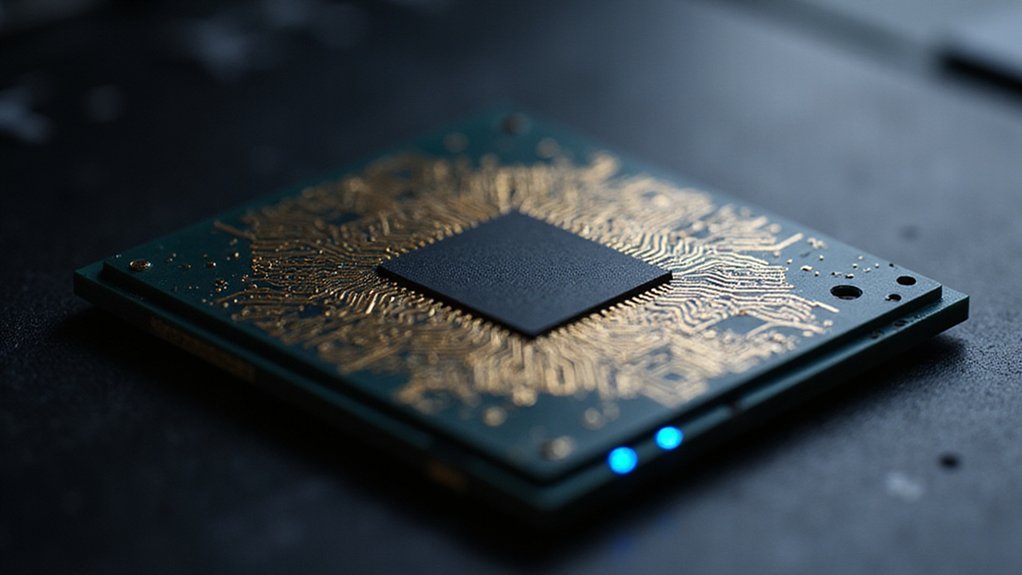While most tech companies content themselves with disrupting payments or social media, Block—Jack Dorsey’s financial services juggernaut—has decided to take a rather more ambitious swing at the crypto infrastructure itself, announcing plans to launch cutting-edge Bitcoin mining chips during the week of August 14, 2025.
CFO Amrita Ahuja confirmed the timeline in a CNBC interview, while Dorsey himself offered his characteristically cryptic marketing approach, posting “Next Week” alongside mining tool imagery on X. The theatrical reveal aside, Block has positioned itself to challenge the established mining hardware triumvirate of Bitmain, MicroBT, and Canaan in a market worth $3-6 billion annually.
The technical specifications suggest Block isn’t merely dabbling in hardware vanity projects. Built on 3-nanometer semiconductor technology—among the most advanced nodes available—these chips promise improved mining efficiency and reduced energy consumption. Modern mining operations increasingly rely on specialized ASICs to compete effectively in the hash rate competition that secures the Bitcoin network.
Block’s 3-nanometer Bitcoin mining chips represent a serious technical commitment to efficiency rather than speculative hardware theater.
More intriguingly, Block has opted for an open-source approach, a decision that could either democratize mining innovation or hand competitors a blueprint for replication (depending on one’s perspective regarding corporate altruism versus strategic positioning).
Perhaps most significant is Block’s commitment to entirely US-based production, a supply chain strategy that sidesteps the geopolitical complexities plaguing much of the semiconductor industry. This domestic manufacturing approach not only reduces exposure to international tariffs and trade tensions but also enables rapid integration of user feedback—assuming users provide constructive criticism rather than the typical crypto community discourse.
Block’s broader vision extends beyond mere hardware manufacturing, positioning Bitcoin as foundational internet infrastructure rather than speculative digital gold. The company frames this mining chip initiative within its larger ecosystem strategy, supporting everything from retail payment solutions to decentralized services powered by Bitcoin transactions. The announcement has already catalyzed significant market interest, with Block’s stock price experiencing a 7.02% increase as investors anticipate the potential impact on mining efficiency and profitability.
The market implications remain substantial. Block’s entry could genuinely democratize mining access, particularly given their emphasis on supporting innovative products beyond traditional mining rigs.
Whether this translates to meaningful decentralization or simply adds another player to an increasingly competitive hardware market depends largely on execution and adoption rates. The open-source component, however, represents a fascinating experiment in collaborative hardware development that could reshape how mining equipment evolves industry-wide.







